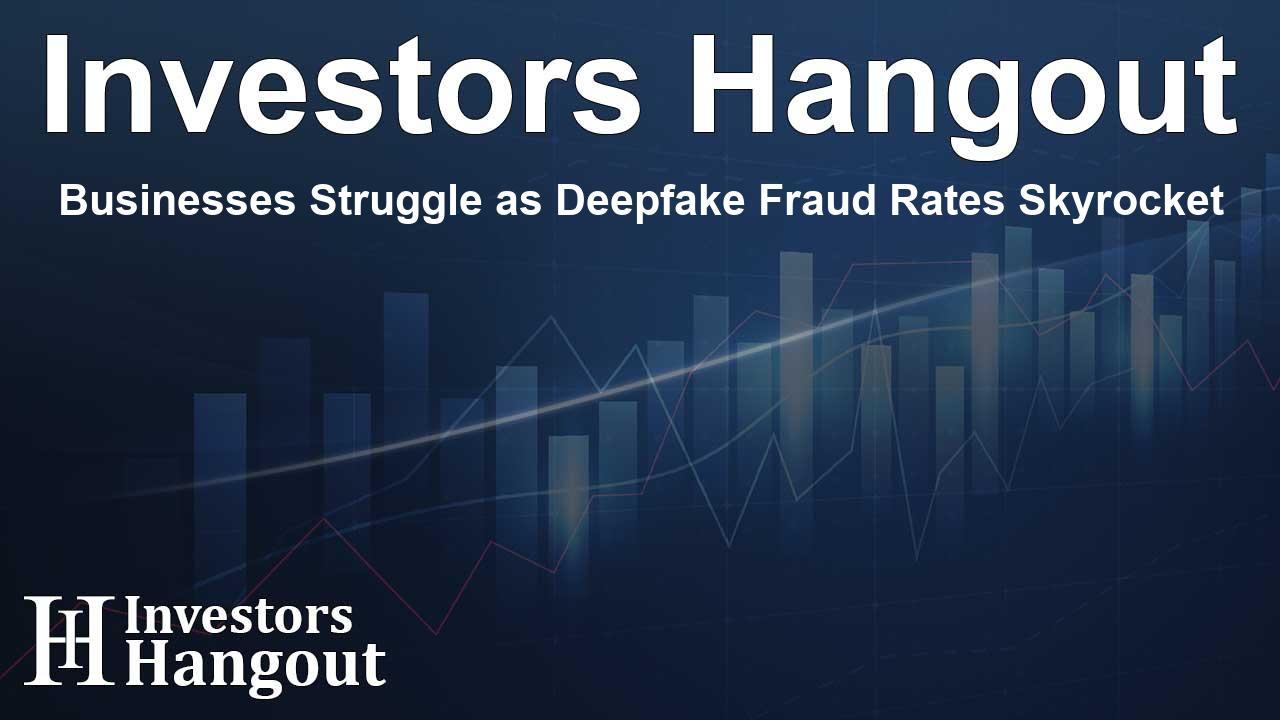Businesses Struggle as Deepfake Fraud Rates Skyrocket

Deepfake Fraud Incidents Surge Among Global Businesses
In 2024, nearly half of businesses around the world reported encounters with deepfake fraud. This alarming trend underscores an escalation in AI-related criminal activities that have been noted over the past two years. The findings originate from a recent comprehensive survey titled "The Deepfake Trends 2024," initiated by Regula, a leading developer in forensic devices and identity verification solutions.
Rising Tide of Deepfake Threats
Regula's recent survey illustrates a significant uptick in incidents involving video deepfakes. The data indicates a 20% increase from 2022, with 49% of fraud decision-makers in various countries, including the USA, UAE, Mexico, Singapore, and Germany, reporting such incidents in 2024. Compared to the previous survey period, this represents a notable rise in video deepfake fraud.
Audio Deepfakes and Industry Trends
Similarly, audio deepfake incidents have escalated, showing a 12% increase compared to previous data. Notably, specific sectors are witnessing different aspects of these threats; for instance, Financial Services and Aviation report a higher prevalence of audio deepfakes, while Technology and FinTech sectors experience more video-related scams.
Regional Insights: Who is Most Affected?
The data also reveals varying susceptibility to deepfake fraud across different regions. In the UAE, 56% of businesses reported experiences with video deepfakes, while Singapore businesses faced a similar challenge in audio deepfakes. Conversely, Mexico reported the lowest rates, with only 35% encountering video deepfakes and 38% facing audio deepfakes.
Persistent Threats in Identity Fraud
Despite the rapid emergence of deepfakes, older forms of identity fraud relating to fake or altered documents continue to pose significant risks. Approximately 58% of businesses globally acknowledged experiences with such fraudulent activities, highlighting that traditional threats remain as relevant as ever. Countries like Mexico, the UAE, and the US show particularly high rates of identity fraud, indicating the need for enhanced verification methodologies to address both new and persistent threats.
Strategizing Against Deepfake Fraud
As deepfake technology becomes increasingly advanced, companies must adapt their defenses. According to Ihar Kliashchou, Regula's Chief Technology Officer, the standard verification methods are proving insufficient in the face of these sophisticated threats. He emphasizes the importance of a liveness-centric approach, which involves verifying biometric data and ID documents in real time during interactions. This method stands as a cornerstone of Regula's research and development efforts, aiming to empower clients in preventing fraud.
About Regula
Regula has established itself as a pivotal player in the forensic technology landscape, with over 30 years of experience in research and a robust library of document templates. The company's innovations in biometric verification and document security serve over 1,000 organizations and numerous border control authorities worldwide. Regula has consistently been recognized as a Representative Vendor in Gartner's Market Guide for Identity Verification, a testament to its commitment to security and technological advancement.
Frequently Asked Questions
What is the impact of deepfake fraud on businesses?
Businesses globally are experiencing significant risks due to deepfake fraud, with nearly half reporting incidents in recent surveys.
How do audio and video deepfakes differ in prevalence?
Audio deepfakes have seen an increase, but video deepfakes currently present a larger threat to businesses in several sectors.
Which regions are most affected by deepfake fraud?
The UAE and Singapore exhibit the highest susceptibility to deepfake fraud, while Mexico reports the lowest impact.
What is Regula's approach to combating deepfake threats?
Regula advocates for a liveness-centric approach, focusing on real-time verification of biometric data and ID verification.
How are traditional identity fraud methods still relevant?
Despite emerging deepfake technologies, traditional identity fraud methods, like fake or modified documents, continue to be prevalent across many regions.
About Investors Hangout
Investors Hangout is a leading online stock forum for financial discussion and learning, offering a wide range of free tools and resources. It draws in traders of all levels, who exchange market knowledge, investigate trading tactics, and keep an eye on industry developments in real time. Featuring financial articles, stock message boards, quotes, charts, company profiles, and live news updates. Through cooperative learning and a wealth of informational resources, it helps users from novices creating their first portfolios to experts honing their techniques. Join Investors Hangout today: https://investorshangout.com/
Disclaimer: The content of this article is solely for general informational purposes only; it does not represent legal, financial, or investment advice. Investors Hangout does not offer financial advice; the author is not a licensed financial advisor. Consult a qualified advisor before making any financial or investment decisions based on this article. The author's interpretation of publicly available data shapes the opinions presented here; as a result, they should not be taken as advice to purchase, sell, or hold any securities mentioned or any other investments. The author does not guarantee the accuracy, completeness, or timeliness of any material, providing it "as is." Information and market conditions may change; past performance is not indicative of future outcomes. If any of the material offered here is inaccurate, please contact us for corrections.









